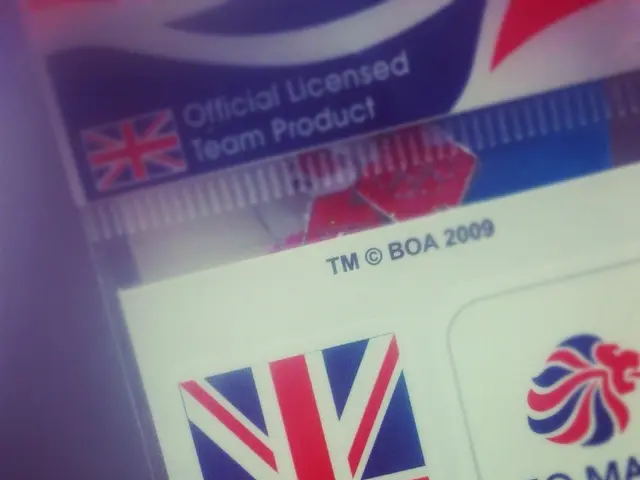Navigating the Unexpected: Embracing Life’s Uncertainties
Exploring the Inevitable: Strategies to Combat Unpredictability
Life is a rollercoaster of twists and turns, and uncertainty is an inevitable part of the journey. From minor decisions to momentous life events, uncertainty creeps into every corner of our existence, causing stress and unease. But it's up to us to find ways to stay afloat and even thrive in the face of the unknown. Here's how to conquer anxiety and reshape uncertainty into an opportunity for growth.
Beating the Anxiety Blues
Uncertainty often triggers the fight-or-flight response, releasing stress hormones and causing emotional turmoil. To combat this reaction, it's essential to develop essential psychological strategies that foster resilience and promote emotional well-being.
Grab Control Where You Can
Rather than dwelling on the unpredictable, focus on aspects of your life that you can control and influence in positive ways. By concentrating your efforts in these areas, you can create a sense of agency, diminishing anxiety about the uncertain aspects.
Challenge Negative Thoughts
Pay attention to negative thoughts that fuel your anxiety. Recognize when these thoughts are distorted and practice cognitive restructuring to form more optimistic, realistic thoughts.
Stay Present with Grounding Exercises
When anxiety arises, engage in grounding exercises like the 54321 method, where you focus on five things you see, four things you feel, three things you hear, two things you smell, and one thing you taste.[1]
Lifestyle Choices that Boost Resilience
Your lifestyle plays a significant role in how you cope with stress and anxiety. Adopt these habits to promote your overall well-being and resilience.
Exercise Regularly
Engage in physical activity to improve your mood and reduce anxiety levels.[2]
Reduce Stimulants
Limit your intake of caffeine and sugar, as they can exacerbate feelings of anxiety.[2]
Take Care of Your Whole Self
Prioritize self-care by maintaining a healthy diet, getting enough sleep, and indulging in activities that promote relaxation and enjoyment.
Mindfulness and Relaxation Techniques
embedding mindfulness, meditation, and relaxation practices into your daily routine can help calm your mind and soothe your nerves.
Mindfulness and Meditation
Practice mindfulness meditation to focus and stay anchored in the present moment, lessening worries about the future or past.[3]
Deep Breathing and Diaphragmatic Breathing
Use deep breathing and diaphragmatic breathing techniques to calm your nervous system and quickly reduce anxiety.[3]
Progressive Muscle Relaxation
Relax your body by tensing and releasing different muscle groups, helping to alleviate physical tension and promote a sense of calm.[4]
Additional Coping Strategies
To manage anxiety and uncertainty, employ these additional methods.
Set Realistic Goals
Break tasks into manageable steps to overcome feelings of overwhelm.
Seek Support
Reach out to friends, family, or a professional counselor for emotional support and guidance.
Practice Gratitude
Take time each day to reflect on the positive aspects of life, fostering a more balanced perspective.
By incorporating these strategies into your life, you'll find greater strength and resilience to handle uncertainty and ultimately lead a happier, more fulfilled existence.
[1] - Psychology Today: A Mindfulness-Based Stress Reduction Tool for Groundinghttps://www.psychologytoday.com/us/blog/wired-success/201707/a-mindfulness-based-stress-reduction-tool-grounding[2] - HelpGuide: Stress Relief: 14 Quick Techniqueshttps://www.helpguide.org/articles/stress/stress-relief-14-quick-techniques.htm[3] - Verywell Mind: 8 different types of meditation and what they can do for youhttps://www.verywellmind.com/types-of-meditation-4003875[4] - Mayo Clinic: Physical activity: Get the factshttps://www.mayoclinic.org/healthy-lifestyle/fitness/in-depth/exercise/art-20048389
- Embrace a mindfulness practice to anchor your thoughts in the present moment, reducing worry about the future or past.
- Incorporate meditation into your daily routine to promote emotional well-being and resilience.
- Utilize deep breathing and diaphragmatic breathing techniques to quickly calm your nervous system and lessen anxiety.
- Practice progressive muscle relaxation to alleviate physical tension and promote a sense of calm.
- Engage in regular exercise to improve your mental health and reduce anxiety levels.
- Reduce stimulant intake, such as caffeine and sugar, to minimize feelings of anxiety.
- Prioritize self-care by maintaining a healthy diet, getting enough sleep, and indulging in activities that promote relaxation and enjoyment, all of which contribute to personal growth, career development, and overall health and well-ness.








